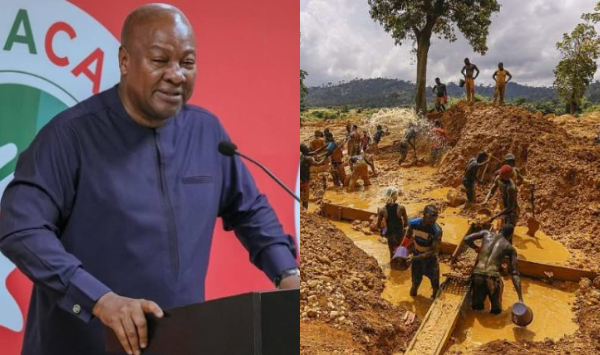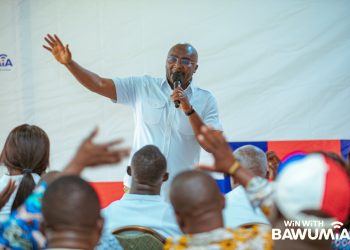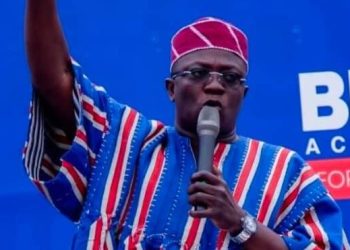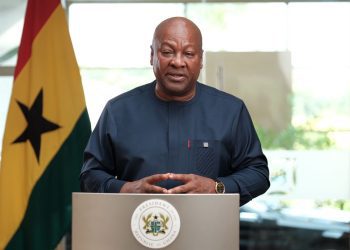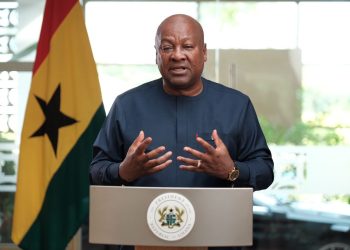President John Dramani Mahama has ruled out declaring a state of emergency in the fight against illegal small-scale mining, popularly known as galamsey, dashing the hopes of a broad coalition of labour unions, academics, faith leaders, and civil society groups who had pushed relentlessly for such drastic action.
Speaking at a media encounter at the Jubilee House on Wednesday, September 10, the president insisted that existing laws already provide sufficient authority to combat the menace, warning that a state of emergency should only be considered as a last resort.
“I’ve been reluctant to implement a state of emergency in the galamsey fight because we’ve not exhausted the powers we even have without a state of emergency,” Mr. Mahama explained.
“We have the opportunity to arrest anybody, to confiscate any such thing. The laws for forest protection and all that give us enough powers to be able to act.”
While acknowledging the rising chorus of calls for tougher measures, the president argued that rushing into an emergency declaration could prove counterproductive.
“Implementing a state of emergency might sound nice, but it should be the last resort. So for now, let’s exercise all the powers we have — and if it becomes necessary for a state of emergency, then we look at it,” he added.
A coalition of disappointed voices
The president’s stance marks a sharp departure from the expectations of groups that made galamsey a defining issue of the 2024 campaign.
Organised Labour
Organised Labour, led by the Trades Union Congress (TUC), had been at the forefront of the push, demanding in September 2024 that government declare an immediate state of emergency on illegal mining.
Labour leaders even announced a nationwide strike for October 10, 2024, to force the issue, although the action was suspended after talks with government.
Ghana Medical Association
The Ghana Medical Association (GMA) and other health-sector voices also joined the campaign, warning of devastating public health consequences from polluted rivers and contaminated food chains.
They demanded an outright ban on small-scale mining, framing it as a matter of national survival.
Civil society coalitions
Civil society coalitions, including the Media Coalition Against Galamsey, Ghana Federation of Labour, and the Kasa Initiative, amplified the campaign with petitions, press conferences, and coordinated advocacy throughout September and October 2024.
Faith leaders
Faith leaders made a dramatic show of support on October 11, 2024, when the Ghana Catholic Bishops’ Conference, the Christian Council of Ghana, the Office of the Chief Imam, and other religious superiors led an environmental prayer walk in Accra.
Hundreds of clergy and laypeople joined the march and presented a petition to the presidency demanding a ban on galamsey and a state of emergency to protect the nation’s rivers and forests.
In 2025, the Ghana Coalition Against Galamsey (GCAG), led by Dr. Kenneth Ashigbey, renewed calls for targeted emergency measures in districts worst hit by illegal mining after reports of violence against anti-galamsey activists.
Numerous citizens’ petitions on platforms like Change.org have also urged government to take emergency steps, ranging from revoking licences to declaring restricted zones in mining areas.
The clamour for a state of emergency reached its peak in late 2024 and was widely seen as one of the campaign issues that propelled Mr. Mahama back to power.
His decision to walk back from the demand has therefore triggered disappointment among those who felt that a firm, decisive stance was imminent.
Organised Labour officials
Organised Labour officials have already hinted that they feel betrayed, while religious leaders who mobilised congregations against galamsey are expected to issue formal responses in the coming days.
Within academia, groups such as the University Teachers Association of Ghana (UTAG) and Ghana National Association of Teachers (GNAT), which lent their voices to the campaign, are also said to be reassessing their trust in government’s political will.
What next for the anti-galamsey movement?
For many of the disappointed stakeholders, Mr. Mahama’s decision reflects a gap between political rhetoric during campaigns and the difficult calculations of governance once in office.
While the president maintains that existing laws offer enough tools, critics argue that the state has repeatedly failed to enforce those laws in the face of political interference, corruption, and the influence of powerful mining syndicates.
As illegal mining continues to devastate rivers such as the Pra, Offin, Ankobra, and Birim, pressure is expected to mount once again.
For now, however, the much-demanded state of emergency remains shelved — and the chorus of voices that once sang in unison for drastic action feels sorely disappointed.

